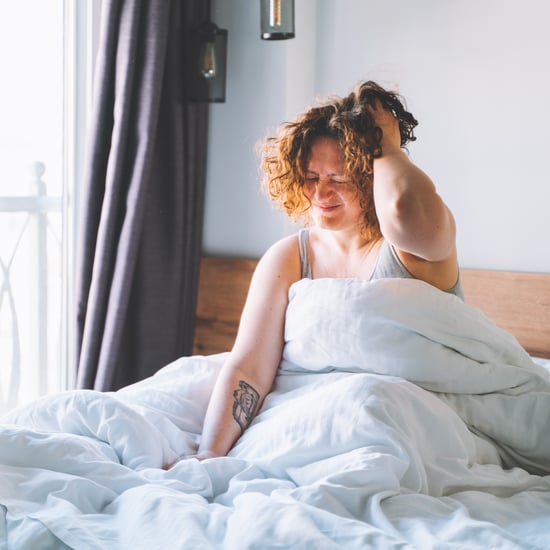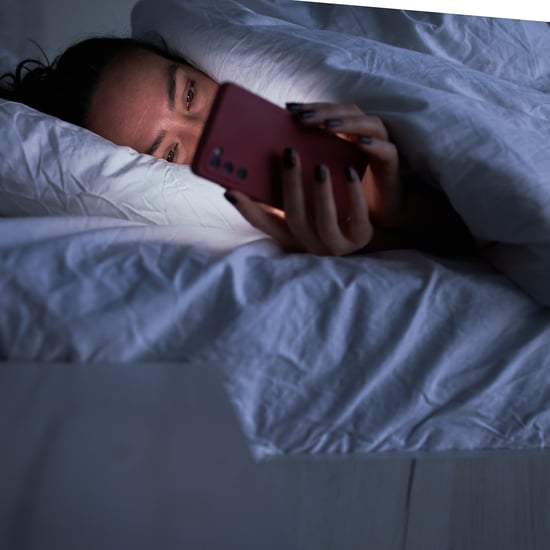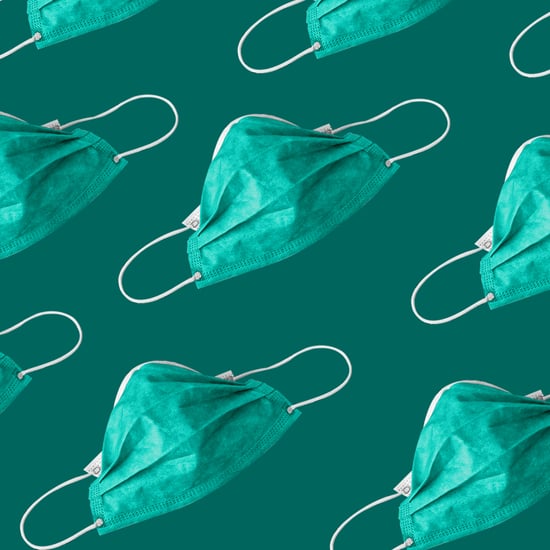Should I Wear a Face Mask For Coronavirus?
Coronavirus: Here's When You Should Wear a Face Mask, Doctors Say

Over the past few months, face masks have emerged as an effective way to slow the spread of the coronavirus. The UK government began recommending cloth face coverings for public use back in June, and since then, they've become a common sight in restaurants, shops, and gyms. Guidelines are slowly evolving as doctors learn more about the virus, so if you're still confused over when and why you should wear a face mask, keep reading; we'll talk about the right kind to buy, how to make sure your mask fits correctly, and what else you can do to protect yourself and others.
The Difference Between Surgical Masks, FFP3, FFP2 and N95 Masks, and Cloth Masks/Face Coverings
Let's differentiate between the types of face masks you see most commonly: surgical masks, FFP3, FFP2 and N95 masks, and cloth face masks (e.g. face coverings). Surgical masks are thin paper masks that are intended to obstruct the flow of germs and pathogens from the wearer to the people around them (not the other way around), which is why the UK government states that they are mainly intended for health care staff to wear to protect patients during surgical procedures and other medical settings. If created with the intention of protecting patients, surgical masks must meet the design and safety requirements of the Medical Device Regulations (MDD/MDR) before they can be sold in the UK. If they do, the government deems them effective Protective Personal Equipment (PPE) to be worn by medical professionals and people working close-contact services (Tlike hairdressers) to protect against the coronavirus.
FFP3, FFP2 and N95 masks, on the other hand, are thicker, more fitted, and more effective at blocking transmission of viruses and other particles in both directions: from the wearer to others, and from others to the wearer.
FFP3, FFP2 and N95 masks are typically intended for healthcare professionals. Currently, the World Health Organisation does not recommend that the general public wear medical masks (surgical masks or FFP3, FFP2 or N95 masks) unless you are experiencing COVID symptoms or think that you are experiencing COVID symptoms. If that is the case, then WHO advises the person wear a surgical mask, not a FFP3, FFP2 and N95 masks, which should be reserved for medical professionals.
Cloth face masks, however, are now advised for use in public spaces. The UK Government recommends a cloth face covering should do the following:
- Cover your nose and mouth while allowing you to breathe comfortably.
- Fit comfortably but securely against the side of the face.
- They should have multiple layers of fabric.
- Be secured to the head with ties or ear loops
- Ideally include at least two layers of fabric (the World Health Organisation recommends three depending on the fabric used).
- Unless disposable, it should be able to be washed with other items of laundry according to fabric washing instructions and dried without causing the face covering to be damaged.
If you're looking for cloth face masks to buy, here are some good options, plus more information on what kind of cloth face masks are most effective.
When Should I Wear a Face Mask For Coronavirus?
As mentioned above, FFP3, FFP2 and N95 masks are not recommended for public use. "We need them in the hospitals. We need them for healthcare providers," said Aruna Subramanian, MD, an infectious-disease doctor and clinical medical professor at Stanford in California. Hoarding these kinds of essential protective tools increases the danger for doctors, nurses, and first responders, who are already at higher risk of infection.
In the UK, the government is now recommending the use of cloth face masks in public areas. These reusable masks are considered most effective at blocking the transmission of the virus from the wearer to others, although new research is now showing that they may also provide some protection to the wearer. It's essential to wear face masks in public areas, particularly because 40 percent of COVID-19 cases may be asymptomatic, according to a CDC estimation. By wearing a mask, even if you aren't showing symptoms, you lessen your likelihood of passing the coronavirus on to someone else. This is a tangible way you can help to prevent the spread of COVID-19.
According to the World Health Organization, you should also wear a face mask if you're experiencing symptoms of the coronavirus, which include a fever, cough, and difficulty breathing, or if you're taking care of someone experiencing symptoms. (Here's more about coronavirus symptoms to look out for.) Most restaurants and businesses are also requiring face mask use.
How Else Should I Protect Myself From the Coronavirus?
The best way to protect yourself is to wear a mask and continue to implement other safety measures. Here's what to do:
- Stay two metres away from others.
- Wash your hands often and for at least 20 seconds each time. Use soap and water. If you don't have access to soap and water, use hand sanitiser that's at least 60 percent alcohol (ethanol or isopropanol).
- Clean and disinfect frequently touched objects and surfaces using a disinfecting spray or wipe. (Here's more on the types of cleaning supplies that fight the coronavirus.)
- Avoid touching your nose, mouth, and eyes.
- Avoid close contact with people who are sick.
- If you decide to use a mask, follow proper usage protocol. Wash your hands before you put on the mask, avoid touching the front of the mask while you wear it, and discard it if it becomes hot or humid or once you're done using it.
POPSUGAR aims to give you the most accurate and up-to-date information about the coronavirus, but details and recommendations about this pandemic may have changed since publication. For the latest information on COVID-19, please check out resources from the WHO, the NHS, and GOV.UK.







